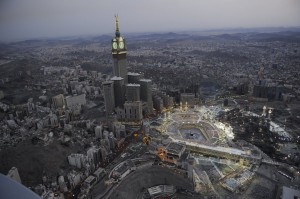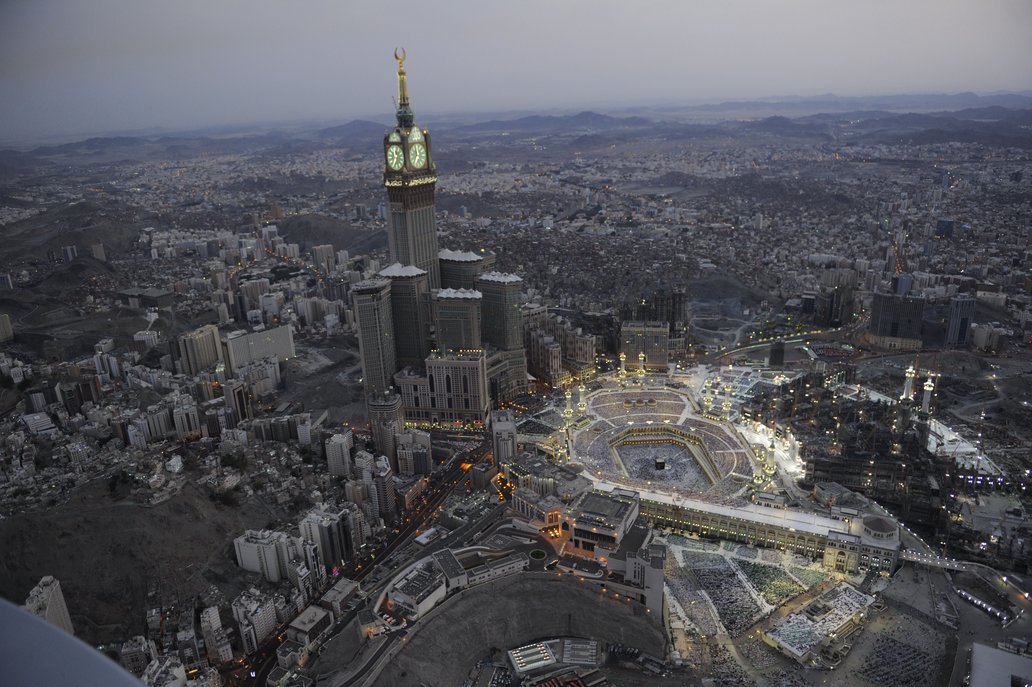
AFP PHOTO / AMER HILABI
Iranian President Mahmoud Ahmadinejad accepted the invitation of Saudi King Abdullah yesterday to attend the extraordinary summit in Mecca scheduled for 14 August and hosted by the the Organization of Islamic Cooperation, a 57-member Muslim organization.
Reza Forqani, Head of the Presidential Office’s International Relations division, told the Islamic Republic News Agency that President Ahmadinejad will “discuss the developments in Muslim countries” at the summit.
The summit describes its mission as “unifying the ranks” of Muslims and is expected to discuss the situation in Syria, the massacres against Muslims in Burma, updates on the Palestinian issue and Saudi experts predict that the Bahraini crisis might also be on the table for discussion.
King Abdullah’s invitation and Ahmadinejad’s response have provoked questions about their political and diplomatic significance.
“The diplomatic view of the situation suggests that the Kingdom is not reaching out for Iran for rapprochement, but rather for a close confrontation” said Mohamed Ezz-al-Arab, a researcher specialising in the Gulf at the Al-Ahram Center for Strategic Studies.
“With all that is going on in Gulf countries and the neighboring countries, Saudi Arabia has a new perspective that gives a reason to dealing with Iran,” Ezz-al-Arab explained.
He added that Ahmadinejad’s presence at the summit might represent a bid by the Kingdom to know what Iran is thinking, to identify the differences between the Gulf countries and Iran and to find common ground with regard to the internal and external threats facing both Iran and the Gulf countries.
“Saudi Arabia might also be considering establishing direct communications with Iran, to prevent it from interfering in issues that affect the Kingdom, like the situation in Bahrain,” said Ezz-al-Arab.
The relation between the Shiite Iranian Republic and the Sunni Saudi Kingdom has historically been a strained one. The Kingdom has accused Iran of using Shiites as a strategy to cause sectarian instability in the Persian Gulf with the aim of gaining regional power.
The relationship became even more complicated after the two Middle East major powers had opposing views regarding the situation in Syria and Bahrain.
Iran announced its support of the Shia protesters in Bahrain, while the Peninsula Shield Forces , the military arm of Gulf Cooperation Council who were mostly from Saudi Arabia were sent into Bahrain to quell protesters.
In Syria, the Iranian regime has expressed moral support to its ally the Alawite President Bashar al-Assad, and was accused of sending military aid to his regime, allegations Tehran has denied.
The Saudi Kingdom has taken the side of the rebels against al-Assad and has called for arming them.
“The relationship between [Iran and Saudi Arabia] has always been a rivalry,” explained Ezz-al-Arab. “They both have religious and economic weight in the region. Iran has always tried to manoeuvre the Shia in the Gulf, which is considered a threat to Gulf Monarchies.”
Ezz-al-Arab expects that Ahmadinejad’s visit to Saudi Arabia will only be of diplomatic value and that it will not have a significant impact on the Syrian situation.
The extraordinary summit comes amid intensive Iranian movements on the political arena, as Saied Galily, Representative of Iranian supreme leader Ayatollah Ali Khamenei visited Damascus on Tuesday to meet with Syrian President Bashar al-Assad. The Iranian Foreign Minister visited Turkey to meet his Turkish counterpart over the situation in Syria and the 48 Iranians who are detained in Syria by the opposition. Iranian Vice-President Hamed Baqai also visited Cairo on Tuesday.




